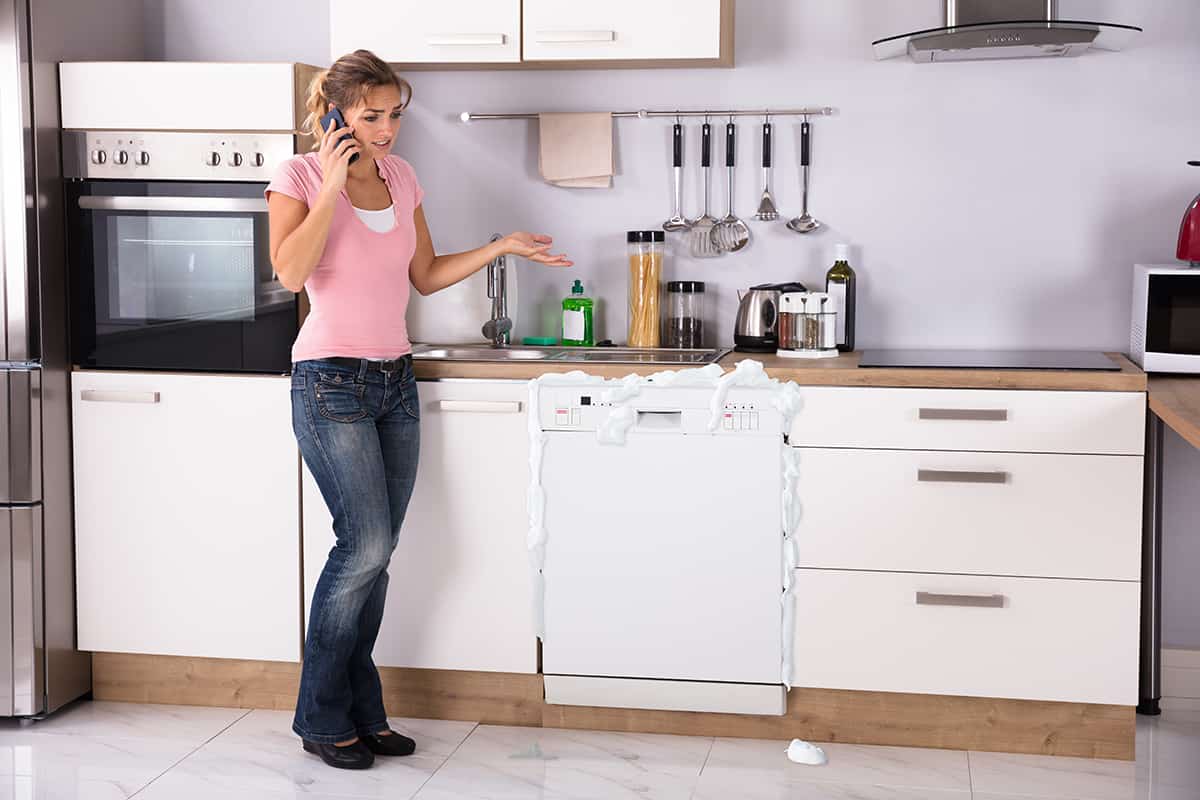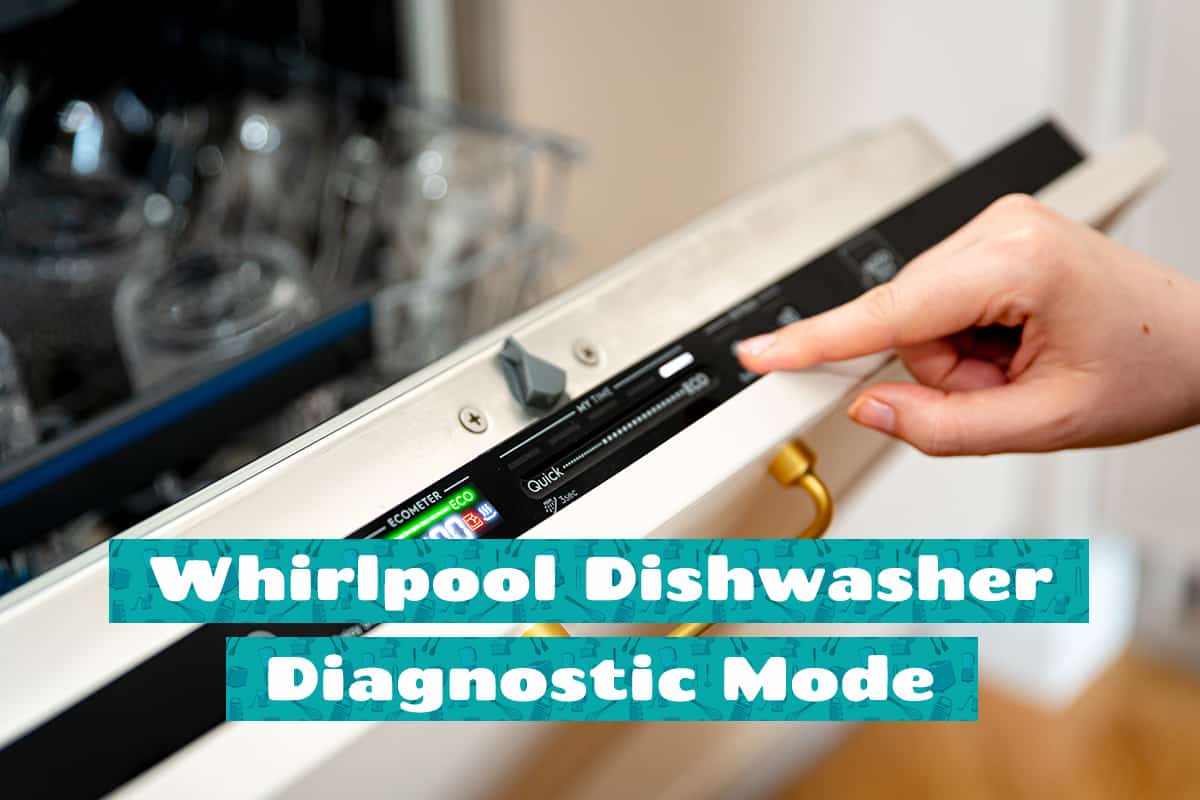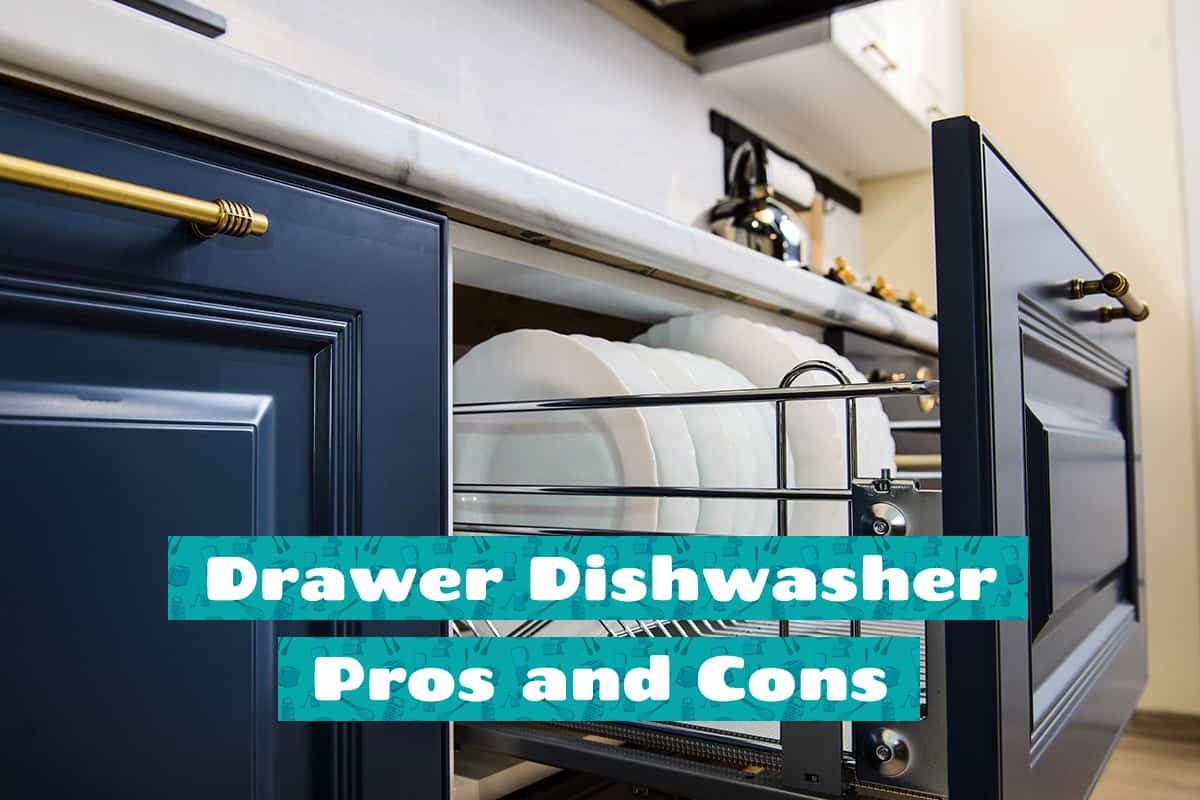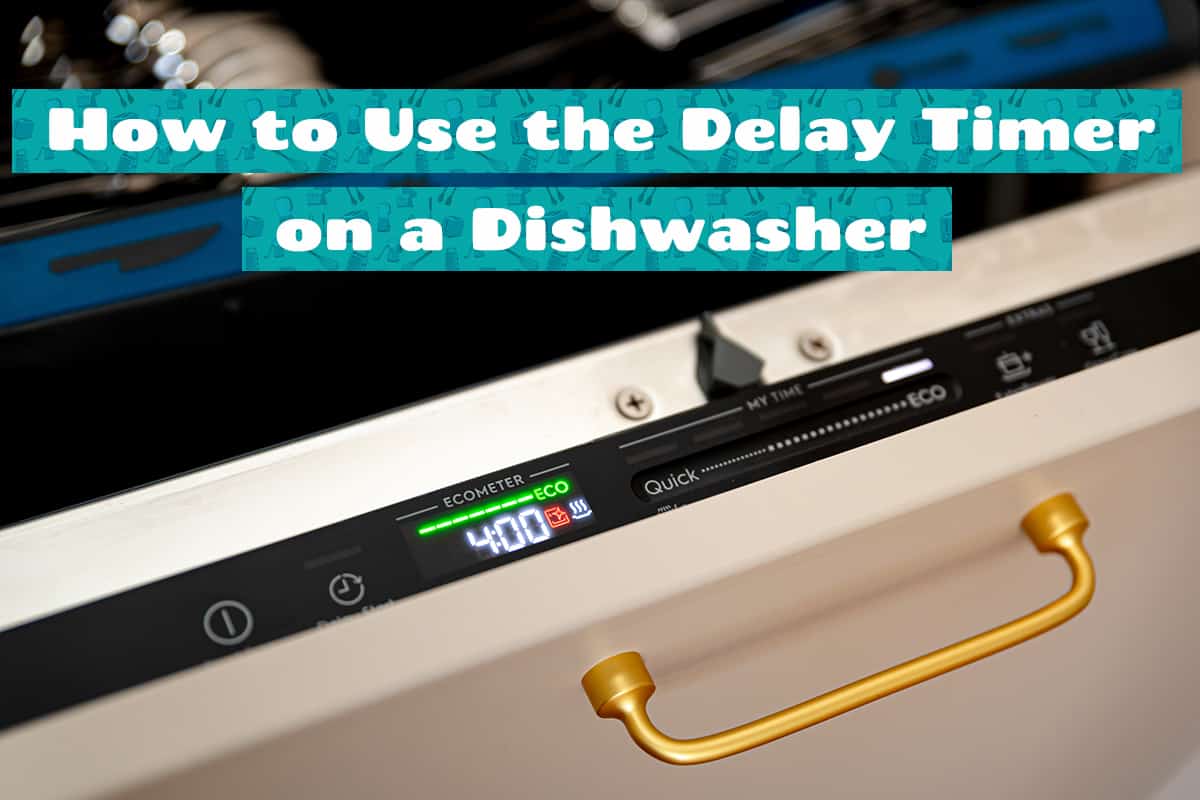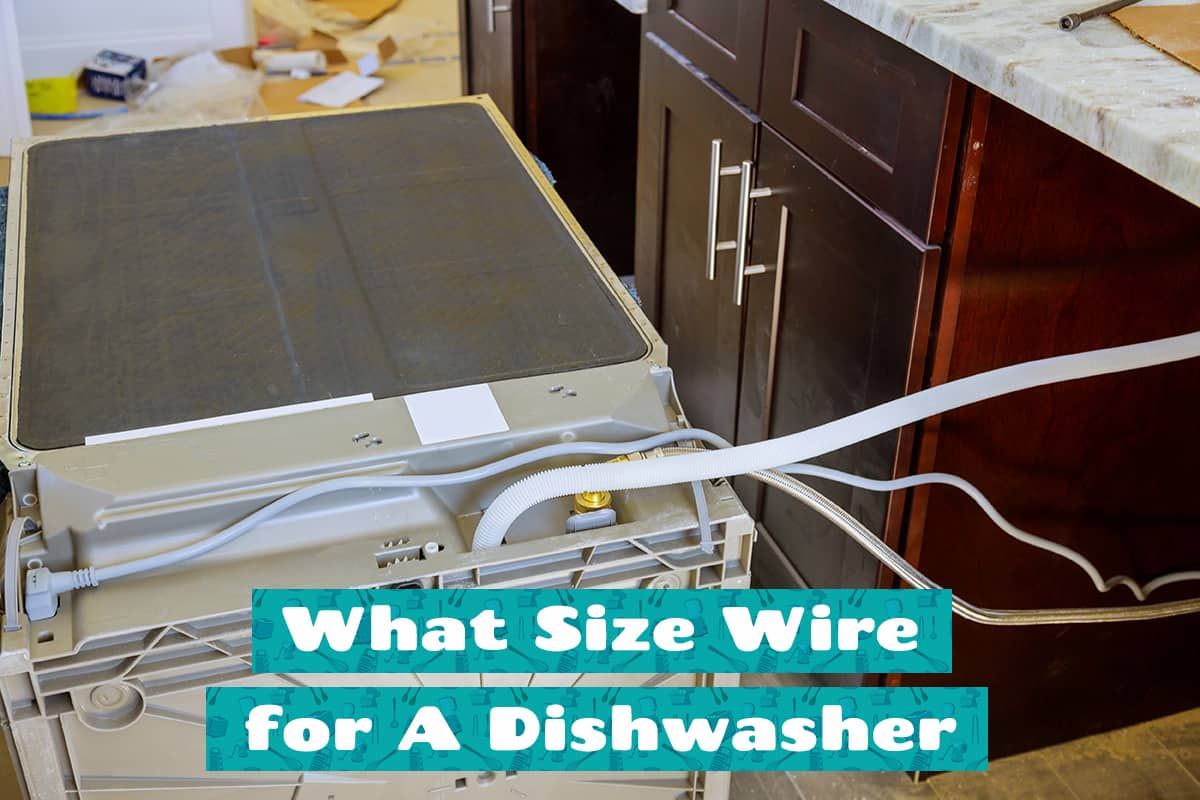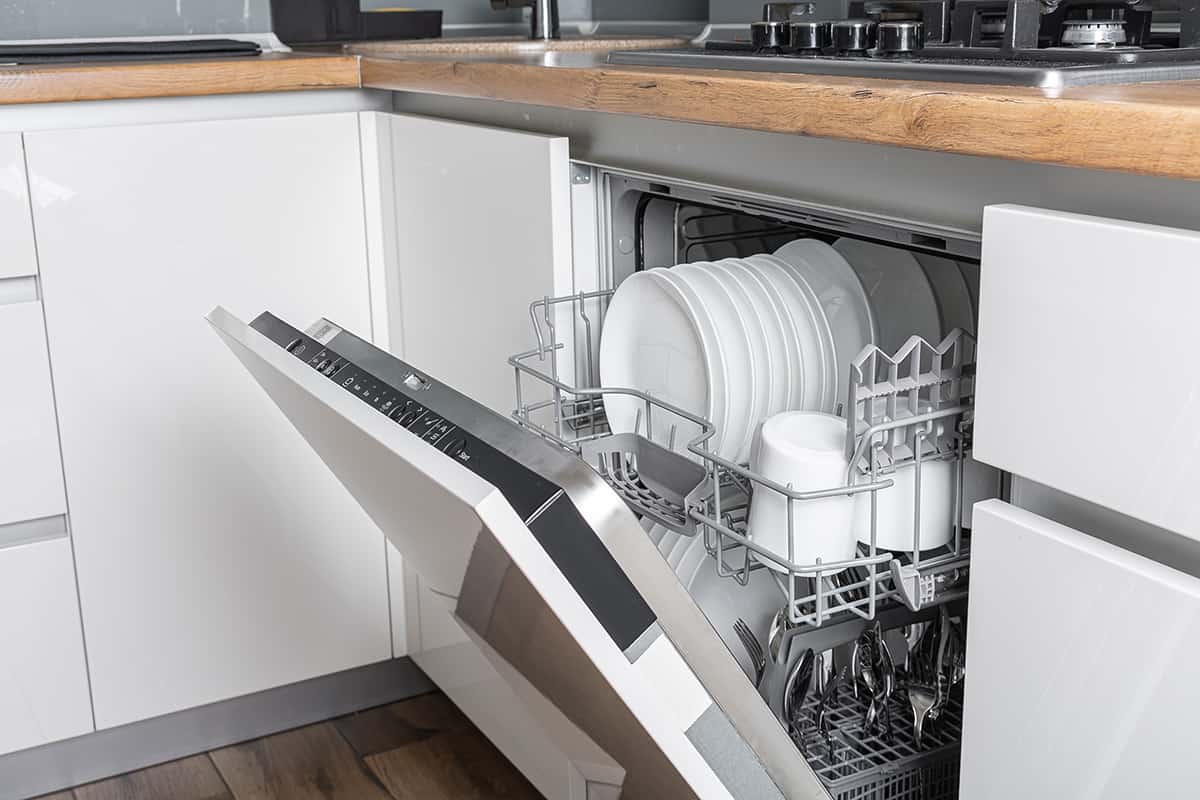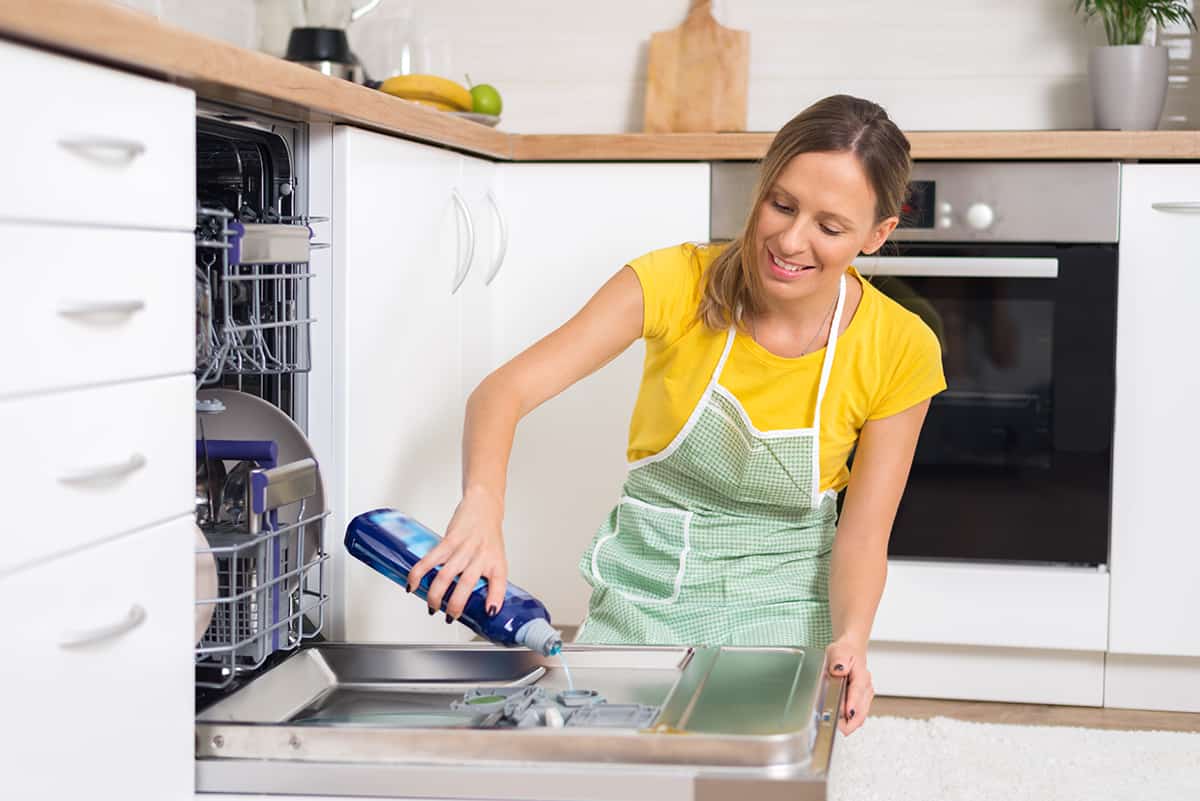Do you know how we wash dishes by hand using dish soap? And we also have these machines called dishwashers that help us clean a lot of dishes at once. But do you think we can use the same dish soap in a dishwasher? That’s what we’re going to look into today.
No, you should not put dish soap in a dishwasher. It can cause excessive suds, which can damage the machine and leave your kitchen in a foamy mess.
In this article, we’ll delve into the reasons why it’s a bad idea to use dish soap in a dishwasher, the science behind it, and what you should use instead.
The Key Differences Between Dish Soap and Dishwasher Detergent
When you’re washing dishes, you might think that dish soap and dishwasher detergent are interchangeable. After all, they both clean dishes, right? But it’s not that simple. Let’s break down the differences.
Composition and purpose
Dish soap and dishwasher detergent have different chemical makeups. Dish soap is formulated to cut through grease and stuck-on food when you’re washing dishes by hand. It creates a lot of suds, which help in scrubbing away dirt and grime.
On the other hand, dishwasher detergent is designed to work with the mechanics of a dishwasher. It doesn’t create suds like dish soap does. Why? It is because a dishwasher cleans dishes using hot water and high pressure, not suds. The detergent helps break down food particles and remove stains without causing a bubbly mess inside the machine.
Impact on Cleaning
The cleaning power of dish soap and dishwasher detergent also varies. Dish soap is effective when you’re scrubbing dishes by hand, but it’s not as strong as dishwasher detergent.
Dishwasher detergent is specifically made to tackle tough, dried-on food particles that can be found on dishes after a meal. It’s formulated to work at high temperatures and with the water jets in your dishwasher to clean and sanitize your dishes.
Environmental and health considerations
When it comes to environmental and health considerations, both dish soap and dishwasher detergent have pros and cons. Some dish soaps are made with natural ingredients and are biodegradable, making them an eco-friendlier option. However, most dishwasher detergents contain harsh chemicals, which can be harmful if swallowed or come into contact with the skin.
The Dish Soap in Dishwasher Experiment
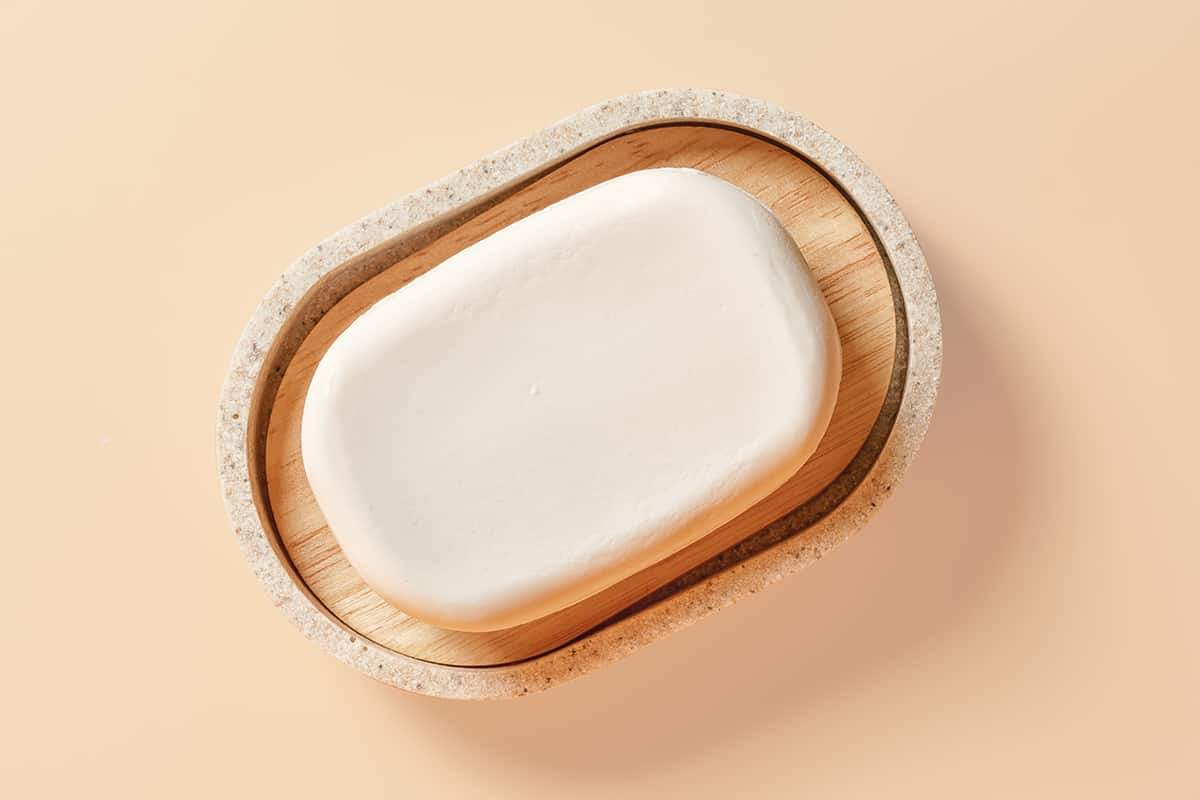
You might be curious to know what happens when you put dish soap in a dishwasher. Well, let’s just say it’s not a good idea.
Have you ever seen one of those old comedy movies where someone puts dish soap in a dishwasher and ends up with a kitchen full of suds? That’s not just for laughs; it can happen in real life too.
Dish soap is made to create lots of bubbles and suds, which are helpful when you’re washing dishes by hand. But dishwashers work differently. They use hot water and powerful jets to clean your dishes. If you put dish soap in your dishwasher, it will create a lot of suds. Too many suds.
So, what’s wrong with too many suds? Well, these suds can overflow from your dishwasher, covering your kitchen floor with a bubbly mess.
The Science Behind the Suds
Let’s dive into the science of why dish soap creates so many suds and why that’s a problem for your dishwasher.
Why dish soap creates more suds than dishwasher detergent
Dish soap contains substances called surfactants, short for surface active agents. Surfactants have a unique structure: one end loves water (hydrophilic), and the other end hates it (hydrophobic). When you add dish soap to water, the hydrophilic ends rush toward the water, and the hydrophobic ends try to escape it. This action creates bubbles or suds.
Dishwasher detergents also contain surfactants, but they are low-foaming ones. They are designed to break down food and grease, but not to produce suds. This is because dishwashers don’t need suds to clean; they rely on the hot water and powerful jets.
The Impact of excessive suds on your dishwasher’s performance
Now that we know why dish soap creates suds let’s understand why too many suds are a problem for a dishwasher.
- Excessive suds can overflow from the dishwasher, creating a mess in your kitchen. But the problems don’t stop there.
- Excessive suds can also interfere with the dishwasher’s cleaning action. The suds can cushion the dishes, reducing the impact of the water jets. This can result in your dishes not being cleaned properly.
- The suds can block the dishwasher’s drain, preventing the dirty water from being pumped out. This could mean your dishes are being washed in dirty water.
- If the suds get into the mechanical parts of the dishwasher, they can cause them to malfunction or even break down. This can lead to costly repairs or the need for a new dishwasher.
Potential Damage to Your Dishwasher
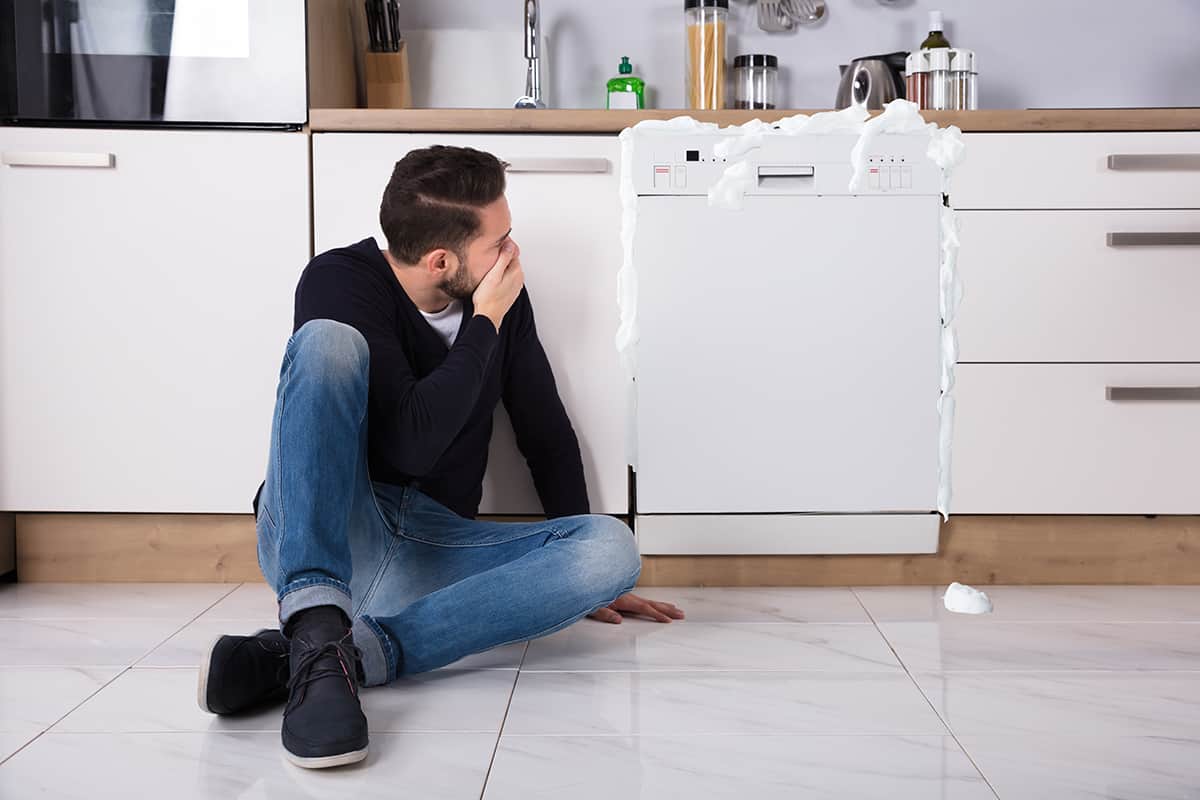
We’ve talked about the sudsy mess that putting dish soap in a dishwasher can create, but there’s more to it. Let’s look at the potential damage it can do to your dishwasher.
1. Clogging of the drain and spray arms
Excessive suds can clog up your dishwasher’s drain and spray arms. The drain is designed to pump out dirty water, but if it’s blocked by suds, it might not work properly. This means that your dishes could be washed in dirty water, which defeats the purpose of using a dishwasher.
The spray arms in your dishwasher spray hot water onto the dishes to clean them. If these arms get clogged with suds, they won’t be able to spray the water effectively. This could result in your dishes not being cleaned properly.
2. Damage to mechanical parts
If the suds overflow, they can seep into the mechanical parts of your dishwasher. This includes the motor and the pumps that make your dishwasher work.
Exposure to suds can cause these parts to malfunction or even break down. Repairing or replacing these parts can be expensive. In severe cases, you might even need to replace the whole dishwasher.
3. Impact on the dishwasher’s performance
Even if the suds don’t cause immediate damage, they can still affect your dishwasher’s performance over time.
The excessive suds can leave a residue in your dishwasher, which can build up over time. This residue can reduce the effectiveness of your dishwasher, meaning your dishes might not come out as clean as they should be.
Furthermore, the residue can harden and become difficult to remove, potentially leading to longer-term problems. It can also create a breeding ground for bacteria and mold, which is not something you want in a machine that’s supposed to clean your dishes.
What to Do If You Use Dish Soap in a Dishwasher
Oops! Did you accidentally put dish soap in your dishwasher? Don’t panic. Here’s what to do.
- Stop the dishwasher—If you catch it early, stop the dishwasher immediately. This will prevent more suds from forming.
- Remove the dishes—Take out your dishes and wash them by hand to get rid of any dish soap residue.
- Clean up the suds—Use a towel or sponge to mop up any suds that have overflowed. Be thorough to prevent any slip-and-fall accidents.
- Rinse out the dishwasher—Use a cup or bucket to scoop out the soapy water from the dishwasher. Then, run the dishwasher empty on a short cycle to rinse out any remaining dish soap.
- Use a defoaming agent (optional)—A defoaming agent, such as Leisure Down Foam Time Cleaner can slow down and ultimately eliminate the formation of suds.
- Dry the dishwasher—After rinsing, leave the dishwasher door open to let it dry completely.
- Check the dishwasher—Once it’s dry, check the dishwasher for any leftover suds. If you find any, rinse and dry it again.
